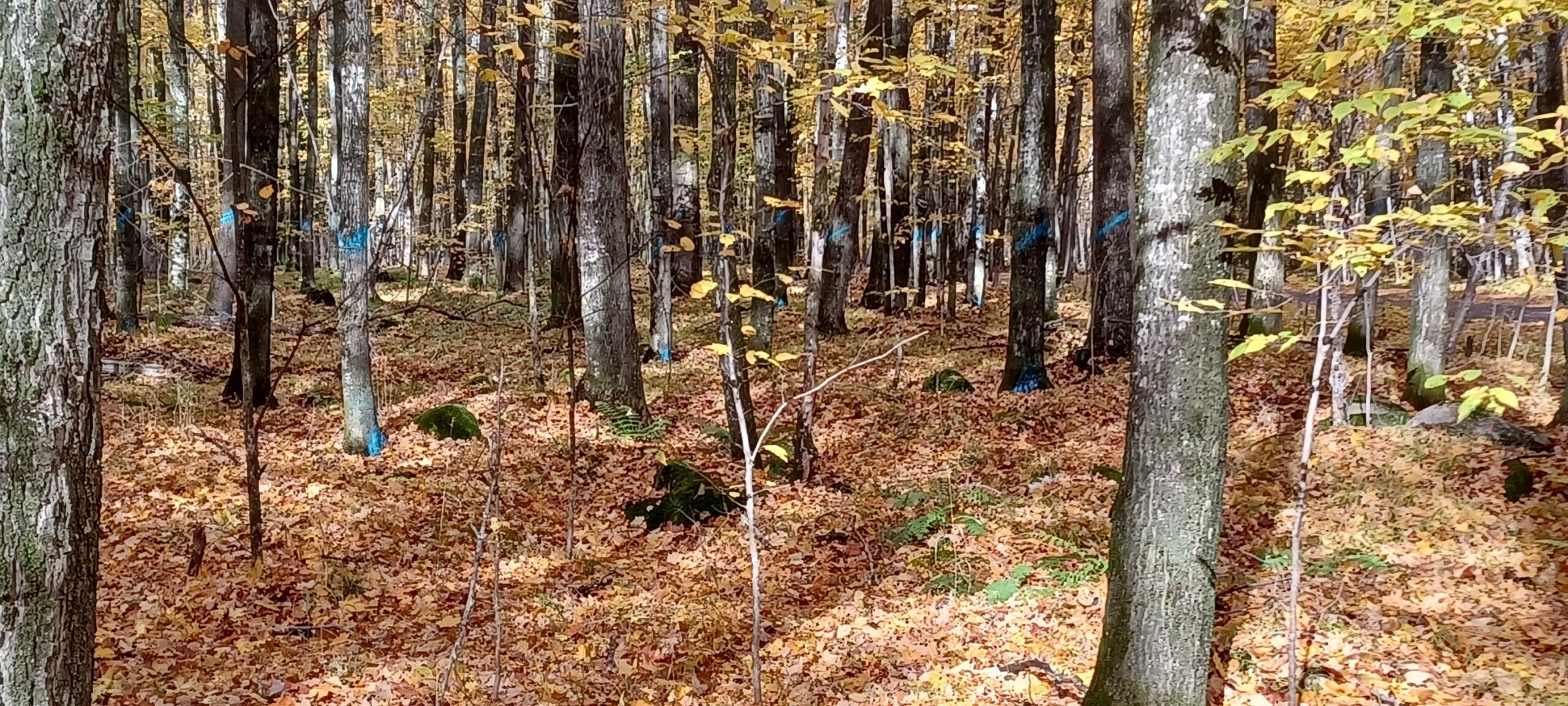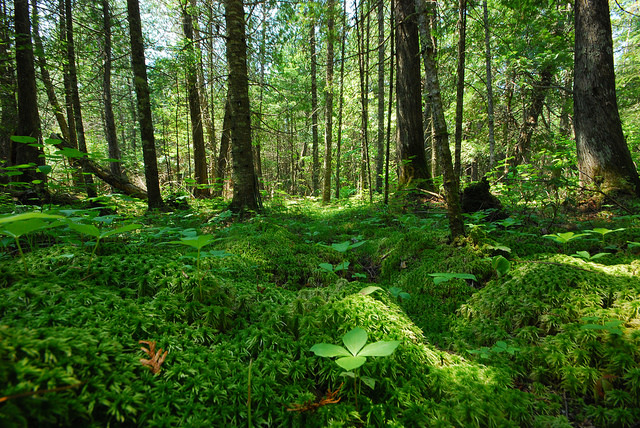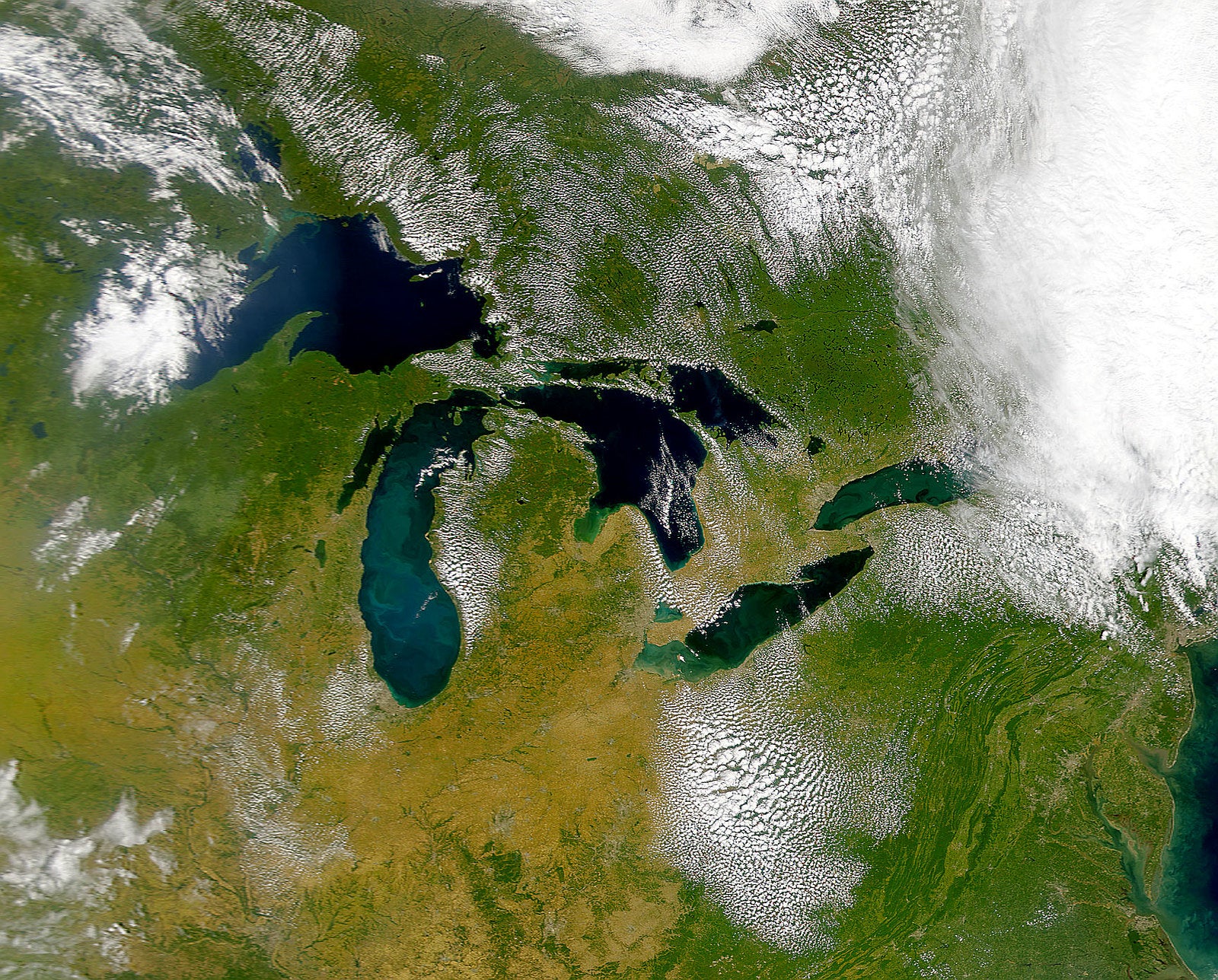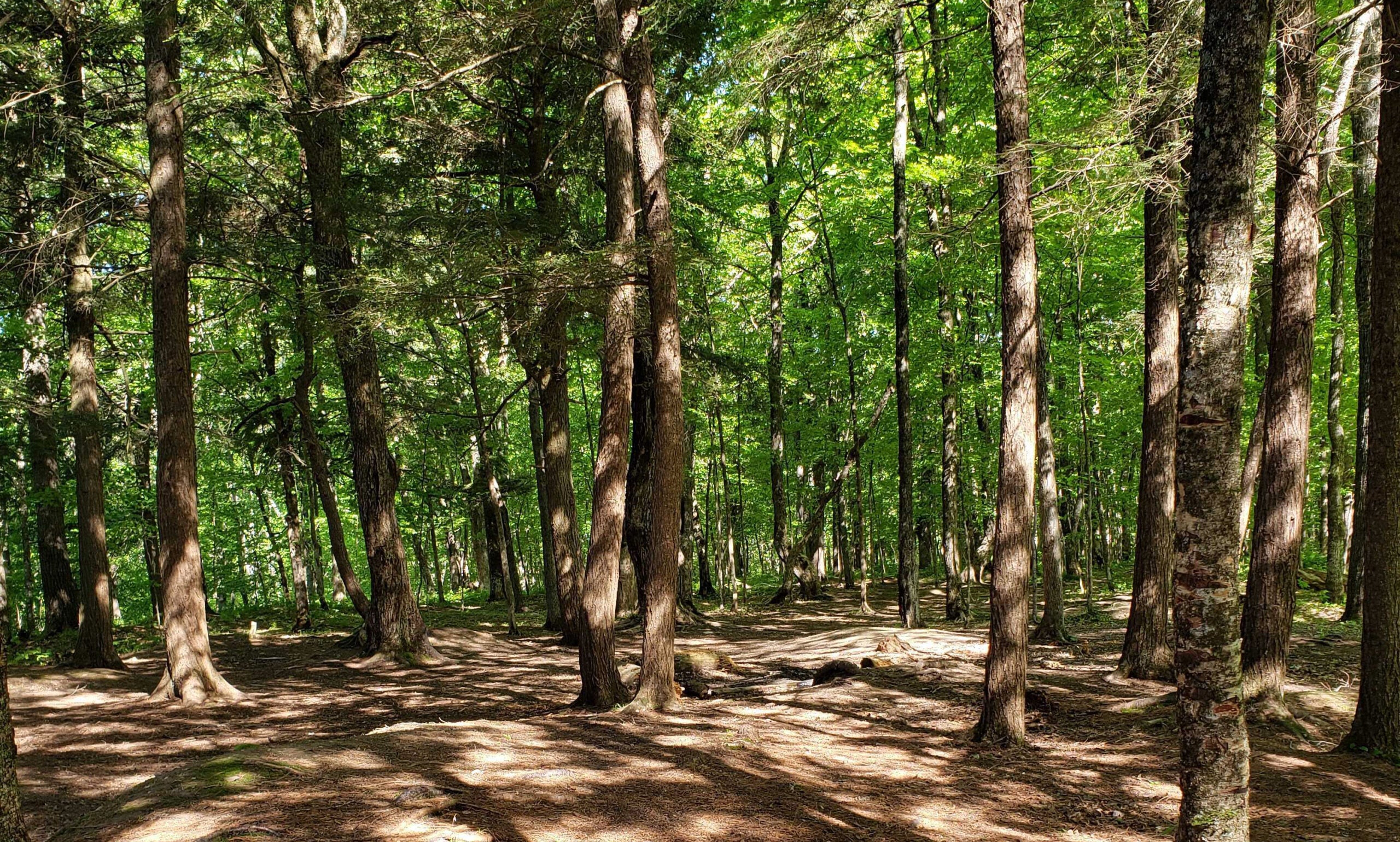More than two dozen groups are asking the U.S. Forest Service to suspend a northeastern Wisconsin project that would log trees they say are crucial for fighting climate change.
The Environmental Law and Policy Center and 28 other organizations petitioned the agency to conduct a supplemental environmental review of the Fourmile project, which would log nearly 12,000 acres in the Chequamegon-Nicolet National Forest. The groups argue the area is made up of mostly older trees that are crucial for storing carbon and fighting climate change. They contend changes to forest management and climate policies under President Joe Biden’s administration represent significant new circumstances that require further review.
The groups point to executive orders issued by Biden that call for tackling the climate crisis and strengthening the nation’s forests by conserving mature and old-growth trees. They also highlight Biden’s call for tribal consultation and biodiversity since the Fourmile area is home to the state-endangered American marten. The animal is culturally significant to Ojibwe tribes in northern Wisconsin.
News with a little more humanity
WPR’s “Wisconsin Today” newsletter keeps you connected to the state you love without feeling overwhelmed. No paywall. No agenda. No corporate filter.
Andy Olsen, senior policy advocate for the Environmental Law and Policy Center, said the U.S. Forest Service is increasing climate risks by allowing the harvest of mature and old-growth trees.
“The agency needs to do that to stop making the climate crisis worse,” Olsen said. “They need to put a hold on logging these mature and old-growth forests, and they need to fully consider the consequences of their actions at Fourmile.”
Agency said project will promote forest’s ‘long-term health’
The Forest Service has previously rejected a request by groups to suspend the project. U.S. Forest Service Chief Randy Moore has said logging the area would “promote the long-term health and productivity” in the area, as well as its potential to store carbon. Moore said past research has shown that carbon stocks in the forest are “stable to increasing” despite declining rates of carbon sequestration.
The Forest Service did not respond to Wisconsin Public Radio’s request for comment about the project and the group’s petition. The agency has found the majority of the forest is made up of “mature or nearly mature” trees following efforts to reforest lands after clearcutting during the 1800s.
Others like Henry Schienebeck, executive director of the Great Lakes Timber Professional Association, disagree with the notion that the White House should dictate forest management policies.

“We believe the Forest Service people do a very good job of implementing their forest management plans,” Schienebeck said. “And we think they use the best scientific data available to make those decisions, and it has nothing to do with who’s in the White House.”
However, environmental groups argue the project ignored the most recent reports on climate science, relying on a study by a United Nations panel of climate scientists from 2007. In its response to comments on the project, the Forest Service said it disagreed that the agency is required to address the effects of individual projects on climate change. The agency cited an executive order from the Trump administration.
Even so, Schienebeck argued that younger trees can store carbon more rapidly than older trees because they need more energy to grow. A 2016 study found younger trees absorb carbon from the air at a faster rate than older trees.
Former agency leader says it should reverse loss of older trees
Former U.S. Forest Service Chief Mike Dombeck, who served under the Clinton administration and hails from Wisconsin, said the agency has to balance economic, ecological and cultural uses of the nation’s forests. He added the definition of what trees are considered mature or old-growth varies greatly depending on the species and parts of the country.
“But, here’s the bottom line that we’re dealing with, is we’re continuing to lose old growth nationwide, and we’re continuing to lose old growth and mature forest lands in this state as well,” Dombeck said.
Among species that thrive in old growth forests is the weasel-like American marten, which is a state-endangered mammal.
In its petition, groups say the Fourmile project area intersects with a Marten Protection Area designated by the Wisconsin Department of Natural Resources. An environmental assessment by the Forest Service said 19 percent of suitable habitat for the species would be lost within the project area during logging, but groups argue more than 41 percent of suitable habitat would be logged.
Intertribal agency says groups’ claims are worth investigating
Jon Gilbert is director of biological services for the Great Lakes Indian Fish and Wildlife Commission, an intertribal natural resource agency. The commission previously called for a halt to the project until the Biden administration finished its inventory of old-growth forests. That inventory, released earlier this year, found federal lands contain more than 112 million acres of mature and old-growth forests.
Gilbert said he doesn’t believe the agency should stop all timber harvests to protect martens, but he thinks the groups’ claims are worth investigating.
“I agree that there are questions about the effects of timber harvests on American marten, so we should look at that,” Gilbert said. “I also agree that there’s questions about the effects of vegetation management on carbon storage and carbon sequestration rates.”
Gilbert said he thinks there’s a way to adjust timber cuts in the forest to address concerns for marten, or Waabezheshi in Ojibwe, a tribal clan animal. He said that includes leaving more trees on the landscape that will lead to bigger trees, as well as creating more dead and downed woody material that martens prefer in the forest.
Wisconsin Public Radio, © Copyright 2025, Board of Regents of the University of Wisconsin System and Wisconsin Educational Communications Board.





